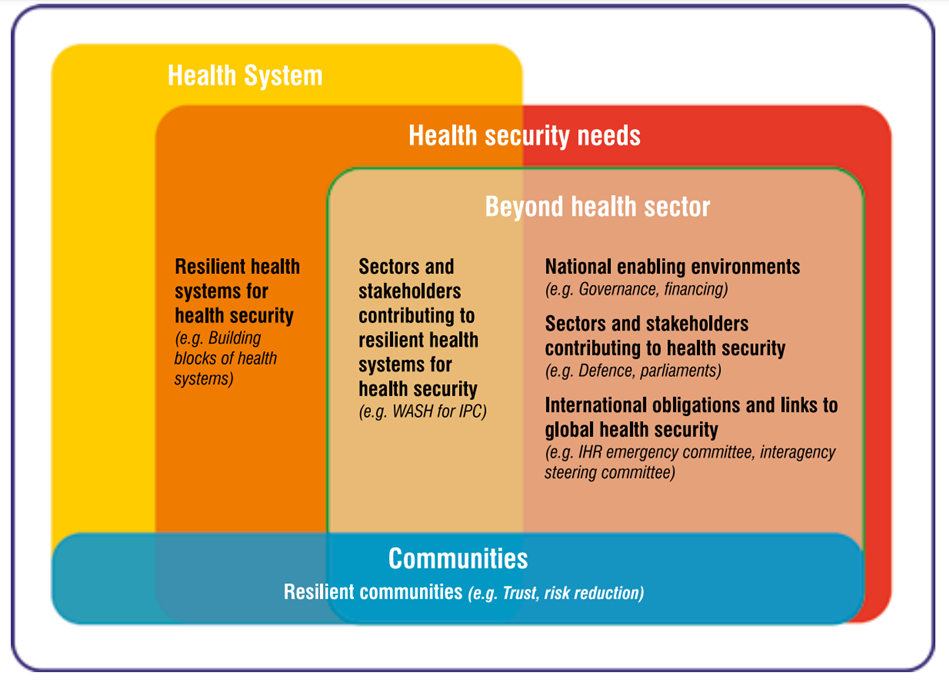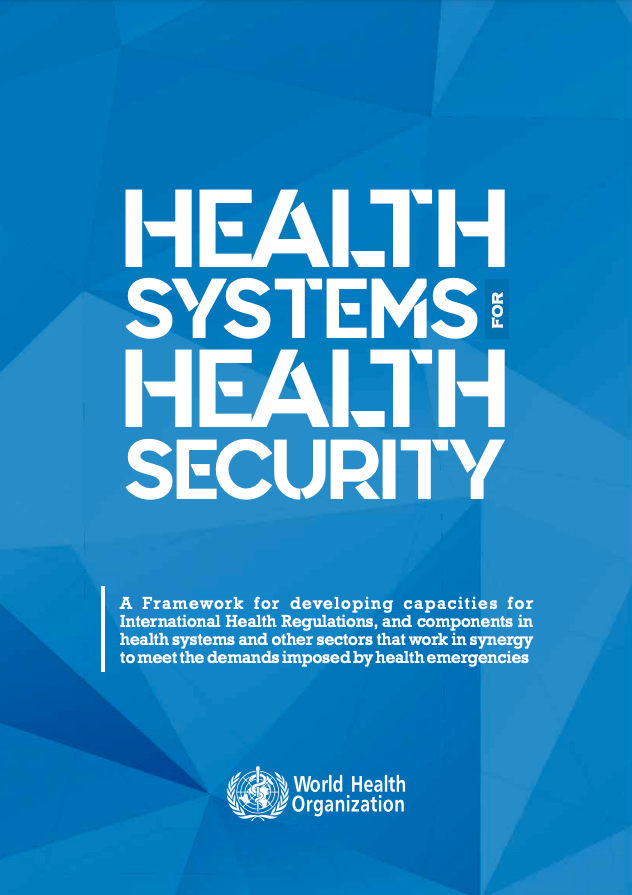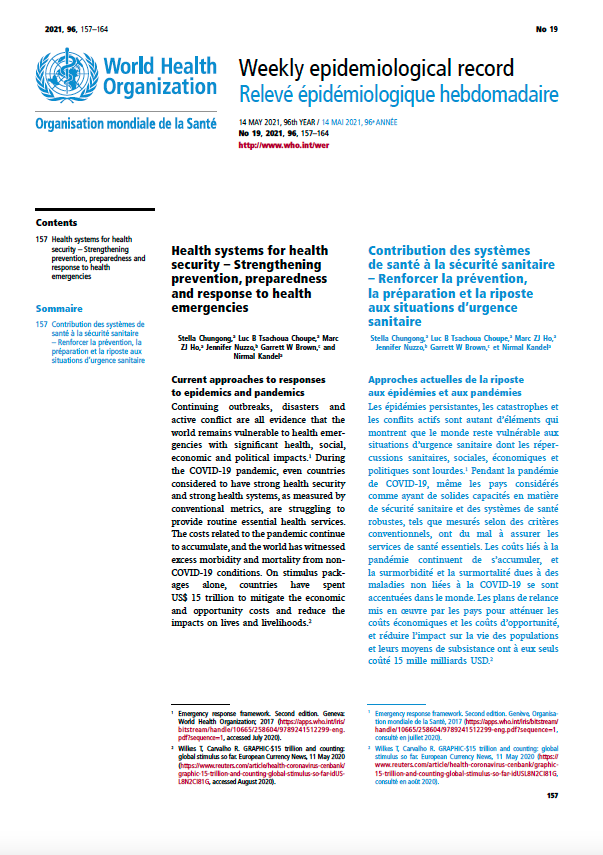Health Systems for Health Security
“COVID-19 is not just a global health emergency, it is a vivid demonstration of the fact that there is no health security without resilient health systems, or without addressing the social, economic, commercial and environmental determinants of health.” Director General of WHO (73rd WHA)
The world today is increasingly interconnected and interdependent. People, goods, and their related services move easily and quickly across regions and international boundaries. This global dynamic presents great opportunities but also comes with its share of challenges and hazards that continuously threaten our society. Foremost of concern are public health events that can emerge locally and spread globally, as has been seen with the COVID-19 pandemic.
There is an urgent need for strengthened health systems which consider the full scope of interventions and actions required to sustainably provide health security. This is the concept of health systems for health security {#HSforHS), which goes beyond the current WHO Benchmarks for International Health Regulations (IHR) capacities recommendations to encompass the health system functions as well as necessary contributions from other sectors.
Further information
- Reference documents on health system for health security
- News and events
- #HSforHS on social media

What does this mean in practice?
WHO is committed to support countries in articulating concrete multisectoral partnership actions to build, strengthen and maintain health systems that would contribute to health security at national and global levels. In this regard, EHS unit is leading and coordinating drafting of the “health systems for health security” framework (available soon). This framework is being developed with the inputs of technical experts, including through global consultations like the WHO Expert Group Consultation on Health Systems for Health Security Geneva (6-7 March 2019).
Purpose and objectives of the Framework
Purpose: To help countries, partners and WHO be better prepared to manage public health events by closing the gaps in health systems. This would lead to improved health security preparedness.
Objectives:
- Solidify a common understanding of what health systems for health security entails and how it contributes to better emergency preparedness to prevent, detect and respond to threats and events, and
- Identify all capacities that are necessary for health security, including capacities from the current WHO benchmarks for IHR, health systems and other sectors. (See diagram below)
Implementation tools
Alongside the framework, EHS is developing implementation tools to guide countries on how to build health systems capacities for health security.
- Benchmarks for health systems for health security (available soon): This technical document is intended to support the framework by mapping all capacities that are relevant for HSforHS for helping countries to plan and prioritize HSforHS capacity development activities.
- Health system for health security global database (available soon): The database is based on a comprehensive list of indicators, determinants and available data sources that will help countries and WHO to assess countries’ strengths and gaps in HSforHS and prioritize actions needed for the enhancement of health security.
- Information and training package (available soon): The package contains resources for raising awareness, sensitising and training relevant stakeholders at all relevant levels on the need and approach to HSforHS (at global, national and local levels).
Implementation tools
Alongside the framework, EHS is developing implementation tools to guide countries on how to build health systems capacities for health security.
Publications
Click on the document to read more

